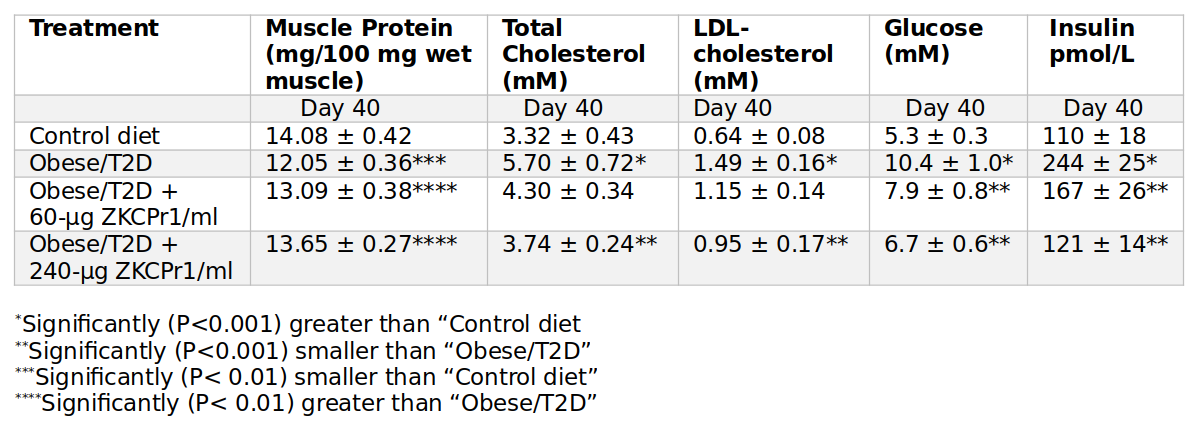 Home
Treatments
Research
Advisors
Management
Contact Us
Home
Treatments
Research
Advisors
Management
Contact Us
Five and a half weeks old female C57BL/6 mice were used. Mice in the first group (7 mice) were fed standard diet (SD), while in 4 other groups (7 mice in each group) mice were fed a high fat diet (HFD). The animals received the SD or HFD for 6 weeks. By the end of the 6th week mice on HFD became obese and diabetic. Then, starting at the beginning of the 7th week highly purified ZKCPr1 (in physiological saline) was administered s.c. in doses of 0.05 mg/mouse or 0.1 mg/mouse and ZKCPr2 (in physiological saline) was administered s.c. in a dose of 0.3 mg/mouse each for 7 consecutive weeks (7 one per week treatments). Mice were kept on SD diet (group 1) or HFD diet (groups 2-5) until the end of 13th week.
At the end of the 13th week body weight was measured and then mice were killed by cervical dislocation under anesthesia followed by excision of visceral fat.
